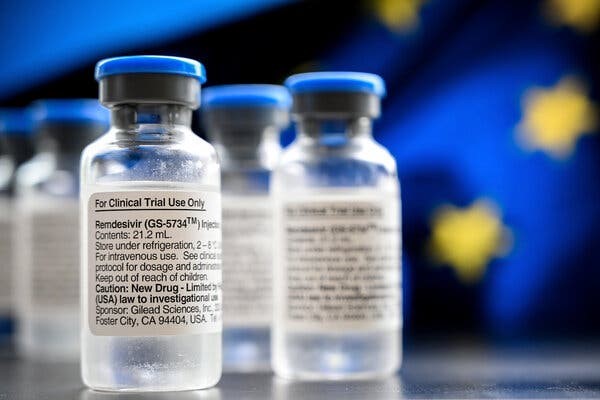Recently, the FDA deemed Remdesivir as a treatment for COVID-19, the first treatment approved as such. Back on May 1, they had granted EUA, emergency use authorization, of Remdesivir for COVID-19 and many hospitals made use of it, especially given that there was very little available for use at that time. Over time though, the drug has been studied in more detail in placebo-controlled trials and has been shown in some studies to not have any benefit, but mainly in mortality studies.
The WHO study which came out on October 15 is the largest study to date studying the effects of Remdesivir in 11,000 people in 30 countires. However, this was also a mortality study for which they did not find any benefit but the study has also not been published nor peer-reviewed. Furthermore, the WHO study has been criticized for not having blinding, to not have collected information on severity of patients’ symptoms, and to have a lot of missing data.
The FDA based a recent decision on an analysis by the NIAID of 3 randomized controlled clinical trials of hospitalized patients with mild to severe disease. In all three separate trials, the results were able to show statistically significant gain in recovery from remdesivir against placebo, one of these articles has appeared in New England Journal of Medicine on Oct 8 as the final report. The main finding was that patients assigned to remdesivir were 1.5 times more likely than placebo to see clinical improvement in 15 days, based on a proportional odds model.
While the WHO study may be consistent with some similar findings that remdesivir does not improve survival in COVID-19 patients, it did not appear to address or validate the clinical improvement seen in the NIAID backed studies and the original Gilead Sciences study, the producers of the drug. Many hospitals will continue to use remdesivir as a front-line medication due the recent FDA decision and its availability while they hold out for future treatments and possible vaccination against COVID-19.
Written by Usha Govindarajulu
October 29, 2020
Image location:
https://static01.nyt.com/images/2020/10/22/multimedia/22xp-remdesivir/merlin_174182841_0423b194-3876-45c5-a863-8c7468ad31a4-articleLarge.jpg?quality=75&auto=webp&disable=upscale
